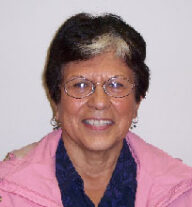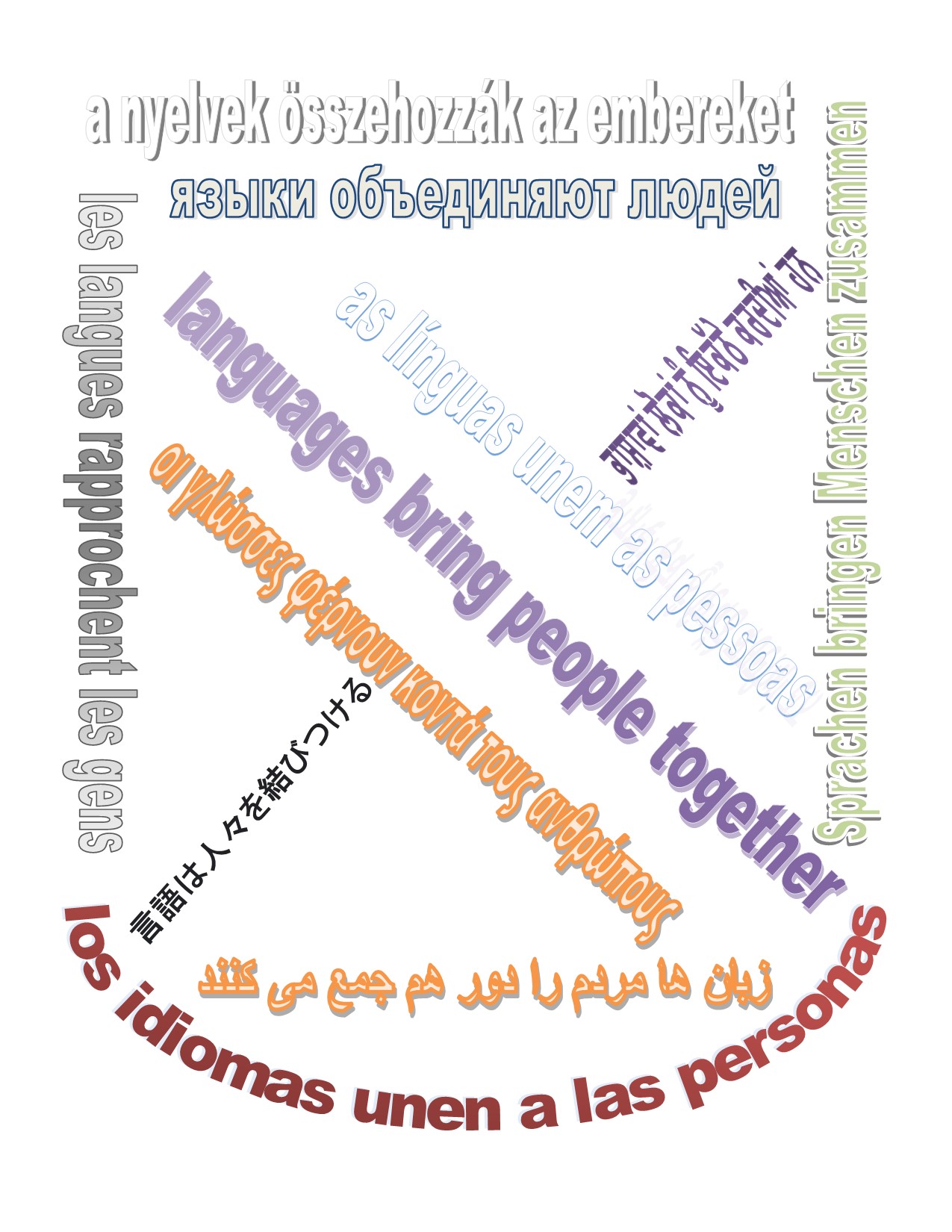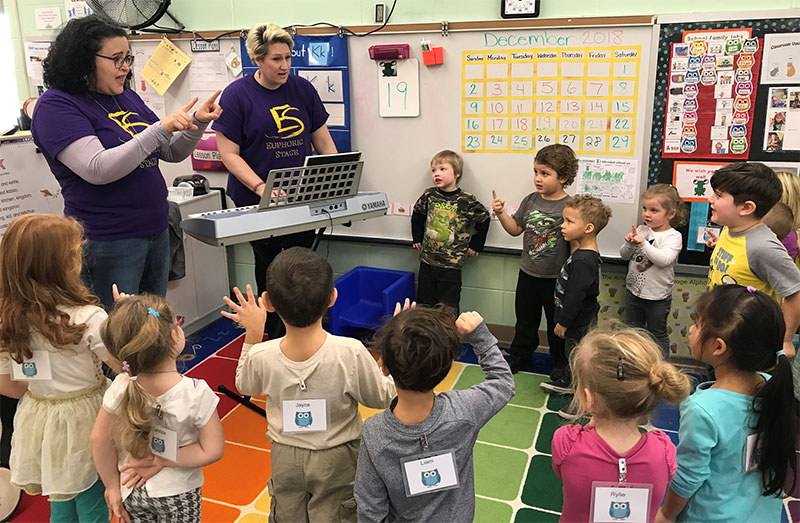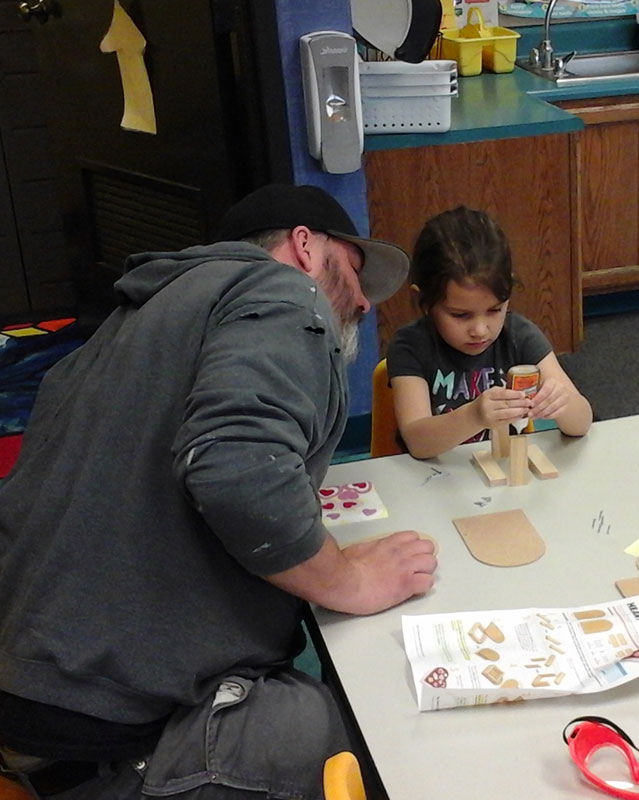Meet our TCHS Bilingual Staff!

Dual Language Coordinator
Elizabeth Rodriguez, Dual Language Coordinator, started her career at Tri-County Head Start in 2017. When she is not at work, she loves spending time with her children, husband, and family. If she could travel anywhere, it would be to Patamban, Michoacán, Mexico to visit her grandfather’s home.

Dual Language Advocate
Gloria Dohner, Dual Language Advocate, spent 13 years at Tri-County Head Start as a Family Advocate and then 11 years as the Dual Language Advocate. When she is not at work, she loves spending time with her grandchildren. If she could travel anywhere, it would be back home to Colorado.

Tri-County Head Start is committed to our Dual Language Learners, (DLL), and addressing all aspects of their needs, along with the needs of their families. It is our policy to provide services, both in and out of the classroom, in the preferred language of the family. In order to achieve this we strive to:
- Provide an environment of acceptance that supports and respects gender, culture, language, ethnicity and family composition.
- Provide an environment that develops social responsibility by providing mutual respect and demonstrating appreciation of cultural diversity and its significance.
- Encourage families to participate in school life by sharing traditions, music, dress, foods, and customs with children in the class.
- Prepare, serve and discuss foods that reflect cultural and ethnic preferences and differences.
- Address holidays with awareness of cultural sensitivity.
- Provide translated documents and other correspondence in the preferred or primary language of the family.
- Communicate orally with families in their preferred or primary language either directly or through the services of an interpreter.
- Hire staff, whenever possible, who speak the home language. Additionally, when many children that speak the same language are enrolled in a single center, we strive to hire at least one classroom staff member or home visitor who speaks their language.
- Promote family participation in literacy related activities in both English and the home language.
- Where practical, provide bilingual correspondence and English language learning materials to family members in order to encourage family involvement.
- Support, engage and educate parents in order to meet school readiness goals.
How are we achieving these goals?
Bilingual staff members are involved in the recruitment process, enrollment and orientation to Head Start.
Families receive correspondence (parent letters, notes, calendars, handbook, flyers, etc.) in their preferred language and, where possible, in a bilingual format.
Staff members receive training on basic Spanish phrases and utilize several resources to communicate with families in written or verbal format.
Resources are provided to families that provide Spanish phrases with an English translation for them to utilize for communication with non bi-lingual staff.
Interpreters and translators are readily accessible to make phone calls, complete Family Partnership Agreements, participate in Freddy Night, Parent Teacher Conferences, Home Visits and to attend community events.
Parents are asked to participate as volunteers in the classroom.
Parents are asked to provide activity ideas for the classroom via
– Ideas for the classroom
– Participation in Policy Council
– Attendance at Freddy Night
LIBROS GRATUITOS!!!
Sign Up Now!
Classroom Settings
A language rich environment is established in each classroom to guide children through the stages of language acquisition. This includes:
- Furniture and materials are labeled in English and Spanish. (Additional languages will be added if they become necessary).
- Staff post songs frequently sung in the classroom in multiple languages.
- A selection of bilingual books and CDs are provided for each classroom.
- Staff is provided key phrases, visual prompts and gestures when completing daily activities such as calendar, meal time, transitions, child choice time and gross motor activities.
- Real life objects and hands on experiences help transition children from non verbal communication to using a few words.
- Staff members work to expand and imitate what a child says.
- Area Learning Signs are in English and Spanish
- Utilizing suggestions and language acquisition information in the Creative Curriculum.
- Incorporation of Thursdays’ Children of the World menu increases children’s awareness of different cultures around the world. Substitutions to the menu are made to accommodate any personal, cultural or religious beliefs.

Family Engagement
- Educating parents is viewed as a priority. All efforts are made to support Family Literacy. Families are provided books in Spanish and encouraged to read to their child as often as possible. They are encouraged to engage their child in conversation in the native language.
- Parents are continually assured that children can learn two languages simultaneously. They are also reminded that Dual Language Learners with a strong foundation in their Home Language will learn to read, write and speak English faster than children who do not have this foundation.
- Assist parents with the continuing development of their own skills in an effort to support them in their role as their child’s most important teacher. The DLL Coordinator regularly examines the most updated research findings regarding dual language learning and keeps parents informed of the results of this extensive research through letters home, brochures, meetings and activities.
- Provide English language learning materials and support parents’ own English acquisition in order to promote and achieve school readiness goals.
- A developmental screening, Ages and Stages, (ASQ-3®), is conducted with parents in their home language when their child begins Head Start.
- Portfolios are completed to document growth in the areas of literacy, creative arts and mathematics. These items are reviewed at conference time with the use of an interpreter.
- Supplemental curriculum items consist of Al’ Pals (social emotional curriculum), Zoo-phonics and Home Kits. Each provides materials in English and Spanish.
- Curriculum and Transition materials are reviewed each year by a selected committee of staff, parents, administrators and community members.


